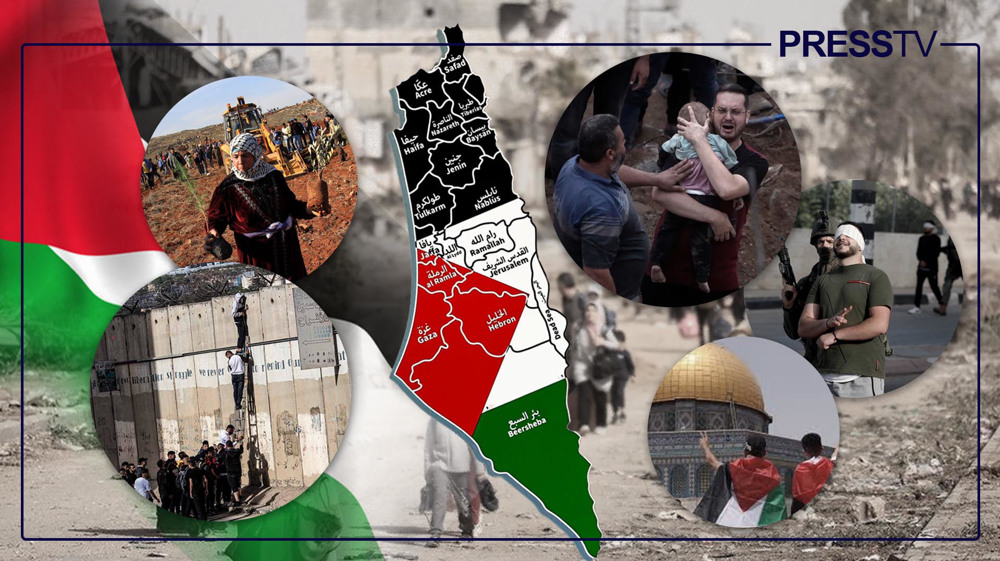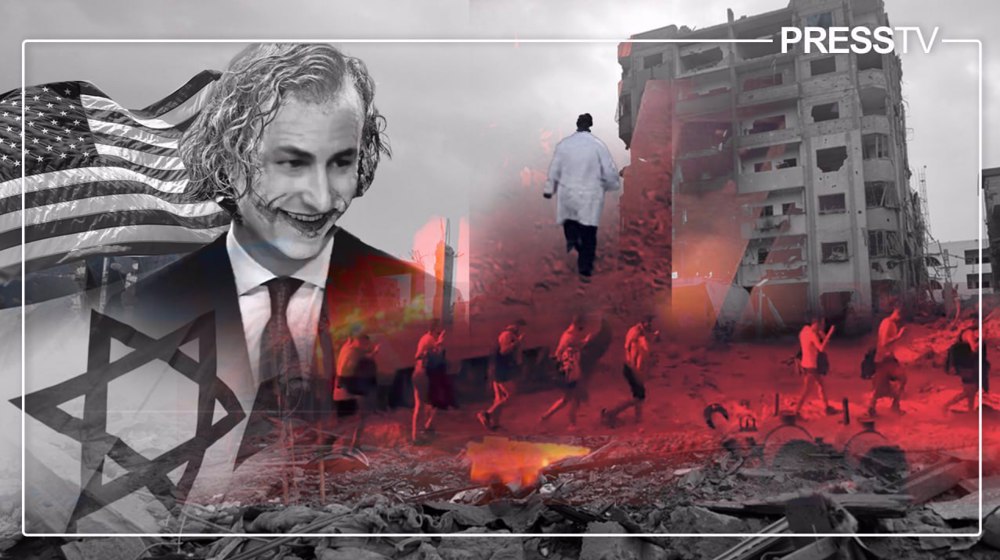From homes to lands, Zionist colonization of everyday life of Palestinians
By Xavier Villar
One aspect that often goes unnoticed when analyzing the situation in Palestine is what can be described as the 'occupation of everyday life.'
This refers to how the Zionist colonial regime and its settler-colonial project are present even in the smallest details and in the most intimate spaces of Palestinian lives.
A political analysis of 'intimacy,' particularly within Palestinian homes, will help illustrate how colonialism infiltrates even the most private corners, typically thought to be secluded or, at the very least, less exposed to the colonial entity.
The intimate focus on politics also enables an observation of how the daily and routine presence of occupation affects the lives and interpersonal relationships of the colonized.
For instance, through this intimate perspective, it's possible to analyze how receiving a home demolition notice impacts people psychologically, or how rebuilding a home each time it is demolished can ultimately affect the mental health of those involved in that process.
This type of analysis should not be interpreted as a departure from studying colonialism but rather as a means to highlight how invasive colonialism is, penetrating households.
In other words, a perspective on the micropolitics of intimate spaces complements the macropolitical analysis of colonialism.
Palestinian homes are regularly evacuated, demolished, and raided. This violation of intimate space is neither recent nor solely provoked by the supposed reaction to the events of October 7.
For instance, in 2016, data published by Israeli media itself indicated an average weekly demolition of 20 structures.
Another example of this home destruction was documented by the Palestinian journalist and author Ramzy Baroud, who recorded in 2017 how the Palestinian Bedouin village of Al-Araqeeb was demolished more than 116 times.
In addition to house demolitions, there are other ways in which the Zionist occupation manifests in everyday spaces, such as state harassment aimed at forcing residents to abandon their homes or eviction orders, which in the Palestinian colonial context could be defined as the legitimization of that harassment.
It's quite common for Palestinian families to be expelled from their homes where they've lived for decades. In the occupied East Jerusalem, there are areas where settler movements, supported and protected by the regime military and legal structure of the colonial state, attack and intimidate Palestinian residents in order to evict them from their homes.
Geographer Sabrien Amrov highlights how violence and the occupation of daily life manifest in the military perception applied to Palestinian homes.
In an infographic published in 2014 by the Israeli army titled 'When is a House a Home?', a typical Palestinian home was portrayed from a militarized perspective.
The bedroom was identified as an 'operations room,' while the living room was considered an 'arms depot.' Through this discursive exercise, the Israeli army justified its attacks on infrastructures that are typically conceived as civilian spaces, places of refuge, and protection.
This discursive process connects the two aspects of Zionist colonial occupation: the microcosm represented by homes and intimacy, and the macrocosm represented by Palestinian territory as a whole.
In both realms, the objective is to dispossess Palestinians of their homes and lands.
Both colonial records highlight the entirety of the occupation, its presence in the daily lives of Palestinians, and the impossibility of finding spaces of refuge, both physically and politically.
From the perspective of homes, it's crucial to note how they have ceased to be simple familial spaces isolated from the colonial exterior and have transformed into what are considered 'battlefields.'
This unexpected intrusion of war into the private sphere of the home has represented, for civilians in Palestine as well as in Iraq or Afghanistan, the deepest form of trauma and humiliation.
In this sense, Palestinian homes are no longer just spaces of increasingly restricted intimacy, but places of occupation, control, and dispossession.
From a theoretical standpoint, a city in a normal context might be delineated by two types of walls: outer walls defining its perimeter and shaping the public space, and inner walls separating intimate or private spaces.
However, in colonial contexts like Palestine, the separation between the public and the intimate disappears. The entire space is delineated by colonial occupation, from open areas to individual rooms.
The image evoked in the case of Palestine, where the boundaries blur between the exterior and the interior of the home, is that of a concentration camp. In such a setting, there are no intimate spaces to seek refuge from violence.
In Palestine, families aren't safe even within their rooms, in their most private and intimate spaces.
The colonization of everyday life and intimacy is another consequence of the Zionist colonial system, serving as yet another reason for resistance.
Xavier Villar is a Ph.D. in Islamic Studies and researcher based in Spain.
(The views expressed in this article do not necessarily reflect those of Press TV)
Jan. 15: ‘Axis of Resistance’ operations against Israeli occupation
VIDEO | US fires: Criticism mounts over govt. failure to respond
VIDEO | Fears, hope in Gaza amid intensified ceasefire efforts
VIDEO | Press TV's news headlines
Hamas: Ceasefire agreement result of steadfastness, resistance in Gaza over 15 months
Hamas thanks Iran, Resistance Front following achievement of ceasefire in Gaza
'Capitulation': Israeli officials and media concede Gaza defeat as truce unfolds
'Gaza has won': Social media users react to ceasefire with mix of relief, joy










 This makes it easy to access the Press TV website
This makes it easy to access the Press TV website